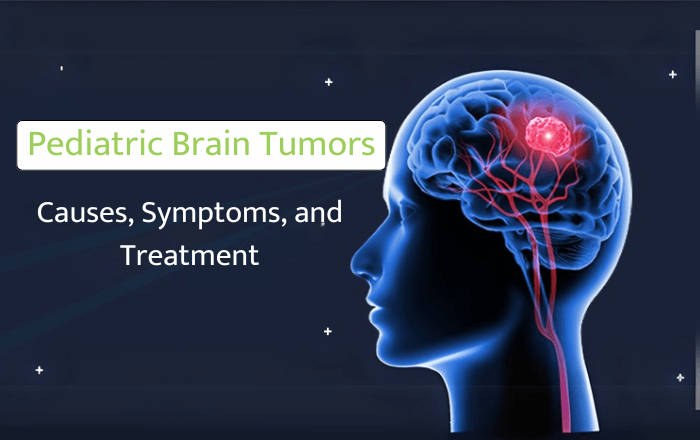Brain tumors in children can be a challenging diagnosis for families to face. These tumours are abnormal growths in the brain that can affect a child’s development and health. Early detection and appropriate treatment are essential for the best outcomes. Understanding the causes, symptoms and available treatments can help parents make informed decisions about their child’s care. If you’re looking for guidance, this blog provides a clear overview of pediatric brain tumors and how specialists like Dr. Harshal Agrawal in Thane can help.
1. What Are Pediatric Brain Tumors?
Pediatric brain tumors are masses of abnormal cells that grow in a child’s brain or nearby structures. These tumors can be:
1. Benign (non-cancerous): These grow slowly and are less likely to spread.
2. Malignant (cancerous): These are more aggressive and may spread to other parts of the brain or spinal cord.
Some of the most common types of pediatric brain tumors include:
1. Medulloblastomas: Found in the cerebellum, affecting balance and coordination.
2. Astrocytomas: Tumors that arise from star-shaped brain cells called astrocytes.
3. Ependymomas: Tumors that develop in the lining of the brain’s ventricles.
While brain tumors in children share some similarities with those in adults, their causes and behavior can differ significantly.
2. Causes of Pediatric Brain Tumors
The exact causes of brain tumors in children are not always clear. However, some contributing factors may include
1. Genetic conditions: Certain inherited syndromes, such as Li-Fraumeni syndrome or neurofibromatosis, increase the risk of developing brain tumours.
2. Environmental factors: Exposure to high levels of radiation or toxic chemicals may play a role, although these are rare causes in children.
3. Unknown factors: Many childhood brain tumours develop without a known cause, and research is ongoing to better understand these mechanisms.
3. Symptoms of Pediatric Brain Tumors
The symptoms of brain tumors in children vary depending on the tumor’s size, type, and location. Common symptoms include
1. Early signs:
- Persistent headache, often worse in the morning.
- Nausea and vomiting.
- Changes in behaviour, mood or school performance.
2. Advanced symptoms:
- Seizures.
- Vision problems, such as blurred or double vision.
- Difficulty walking or balancing.
Recognizing these symptoms early and consulting a doctor is crucial for timely diagnosis and treatment.
4. Diagnosis of Pediatric Brain Tumors
Doctors use several methods to diagnose brain tumors in children:
1. Medical history and physical examination: Reviewing the child’s symptoms and checking for neurological signs.
Imaging Tests:
2. MRI (magnetic resonance imaging): Provides detailed pictures of the brain.
3. CT (Computed Tomography) scan: Helps to detect abnormalities in the brain.
4. Biopsy: A sample of the tumour may be taken to help determine its type and guide treatment.
These diagnostic tools help to determine the size, location and type of tumour, allowing doctors to make a treatment plan.
5. Treatment Options for Pediatric Brain Tumors
Treatment depends on the type, size, and location of the tumor, as well as the child’s age and overall health. Common approaches include :
- Surgery: Often the first step, surgery aims to remove as much of the tumour as safely possible.
- Radiotherapy: Uses targeted energy to shrink or destroy any remaining tumour cells.
- Chemotherapy: Medication that kills cancer cells or stops them from growing.
- Multidisciplinary approaches: A combination of treatments tailored to the child’s needs.
6. Life After Treatment
After treatment, children may need ongoing care to monitor for recurrence and manage side effects. This includes :
1. Regular check-ups: Imaging tests and medical assessments to make sure the tumour has not returned.
2. Rehabilitation: Therapy to help with physical, cognitive or emotional challenges.
3. Family support: Access to counselling and support groups can help families cope with the challenges of recovery.
7.Why Choose Dr. Harshal Agrawal for Pediatric Brain Tumor Care in Thane
Dr. Harshal Agrawal is a trusted pediatric neurosurgeon in Thane, known for his experience in treating brain tumors in children. He provides thoughtful and compassionate care, helping families navigate a challenging journey with clarity and confidence. Families in Thane and nearby areas turn to Dr. Agrawal for his commitment to ensuring the best possible outcomes for young patients.
Frequently Asked Questions (FAQs)
1. Can pediatric brain tumors be completely cured?
In many cases, tumors can be successfully treated or managed. Regular follow-ups are essential to monitor the child’s health.
2. When should I consult a pediatric neurosurgeon?
If your child shows symptoms such as persistent headaches, seizures, or changes in behavior, it’s important to seek medical advice promptly.
If you’re concerned about your child’s symptoms or have questions about pediatric brain tumors, consider consulting Dr. Harshal Agrawal in Thane. Early diagnosis and appropriate care can make a significant difference.

